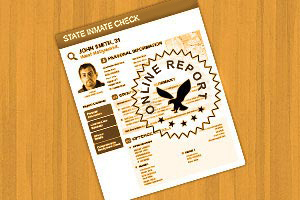Oregon Public Records
The Oregon State Records mission is to offer every person the right to detect, obtain, preview, and examine public records, thus making sure residents of the state of Oregon are provided access in accordance with the Public Records and Public Meetings Laws, which specify that in a democratic society, every person has the right to inspect any nonexempt public record created by a government body.
Every citizen has the right to detect, obtain, investigate, and examine all public records without having to provide a "need to know". Oregon's open government laws promote democracy by ensuring that all state, regional, and local records are managed with transparency and accountability to the public.
Oregon State Records maintains the information concerning the following subject matters: criminal records, court records, and vital records, as well as over 35 million additional public records.
Are Oregon Records Public?
Oregon's Public Record Laws allow any person to request public records. Oregon public records are defined to include any writing received, generated, or used by a public entity, containing information on the entity’s activities. “Writing” as used under the law includes the different forms public information may be stored in, such as handwriting, typewriting, printing, photographs, and every other means of recording information.
What is Considered Public Information in Oregon?
Public records in Oregon may include:
- Oregon court records
- Criminal records
- Arrest records
- Bankruptcy records
- Public Oregon birth records
- Public Oregon death records
- Sex offender information
- Oregon divorce records
How Do I Find Public Records in Oregon?
Any person in Oregon can view or obtain public records by making a request to the custodian of the records. Pursuant to the Oregon Revised Statutes, any custodian who receives a request for a record is mandated to act on the request and provide a response. If the response does not provide the record, it should state the reason the record has not been provided. The custodian of the record a requester seeks depends on the type of record. If the public record is a court record, the requester may need to contact the courthouse where the case was determined. Court records are maintained by the clerks of the courthouse that determined the case. If the request is a vital record, the requester would need to contact the Oregon Health Authority.
The requester would also need to make a request to the custodian. The request should be sufficiently specific to allow the custodian to find the record. The Oregon Health Authority provides Request Forms to be used for making requests for vital records. Some Oregon public records are also available online and do not require official requests. Requests can be made by phone, by mail, or in person. Requests should contain:
- A clear description of the record to requester desires
- The type of record
- The requester’s contact information
- The preferred mode of delivery
- Any other information that could assist the custodian in obtaining the record
Using Third-Party Sites to Find Public Records in Oregon
City Records
Public city records may also be accessible from third-party websites. These non-government platforms come with intuitive tools that allow for expansive searches. Record seekers may either opt to use these tools to search for a specific record or multiple records. However, users will need to provide enough information to assist with the search such as:
- The name of the subject involved in the record (subject must be older than 18 or not juvenile)
- The address of the requestor
- A case number or file number (if known)
- The location of the document or person involved
- The last known or current address of the registrant
Third-party sites are not sponsored by government agencies. Because of this, record availability and results may vary.
Public Records
Public records can also be accessed from third-party websites. These third-party public records aggregate websites offer search services that are non-geographically limited, making the search result expansive and typically straightforward. However, users will need to provide enough information to assist with the search, such as:
- The name of the subject involved in the record as long as the subject is not a juvenile
- The last known or location of the record subject
Third-party public records search websites are not government-sponsored services. Therefore, the availability and accuracy of results can vary.
How Do I Look Up Public Records in Oregon for Free?
Access to free public records will depend on the location of the records, the format, and the custodian. Record custodians may charge fees if the requester wants to obtain copies, wants the records delivered, or if the records are to be extracted from data. On the other hand, electronic copies of records or merely inspecting records may not attract any fees. Records that a requester may obtain for free include sex offender information, incident reports, and court records. Some of these records are available online and are available to any person without cost in some instances. Offices and agencies that allow requesters to inspect records physically provide a terminal or lobby. Requesters may inspect the records in these terminals and lobbies for free.
Oregon began collecting public records starting in the year 1800 from all 36 counties, thereby ensuring Oregon abides by the commitment of the United States of America to remain a fair and just society for all. Because of the digitization of public records - a process that began roughly 30 years ago - these records are increasingly available through both governmental and third-party websites.




